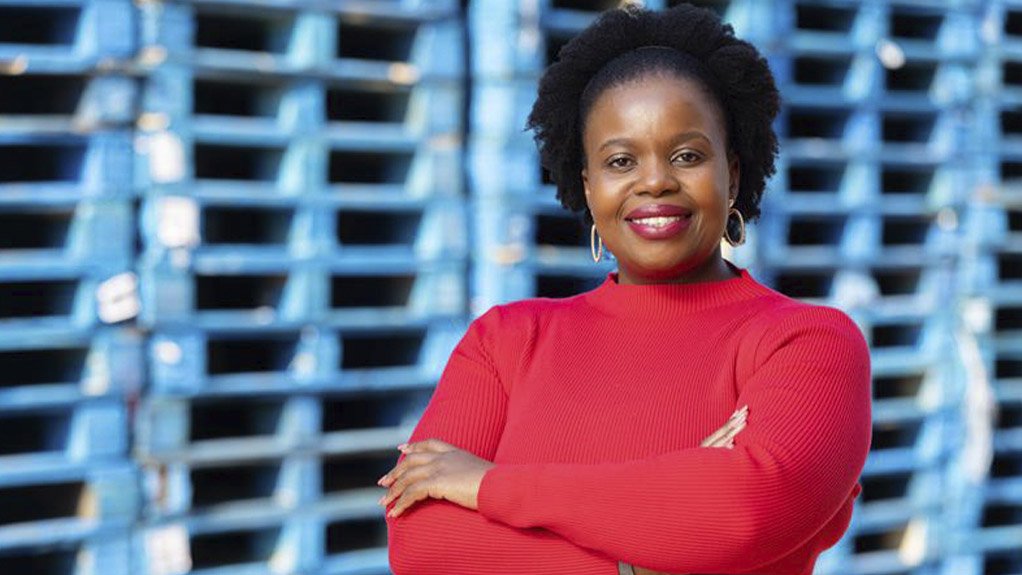Women Work: Breaking bias and building business as a strategic imperative
This article has been supplied.
By: Dr Wongiwe Ludidi, Senior Manager - Talent, Learning and Culture, Sub-Saharan Africa
The gender pay gap, stereotypes related to race and gender, imposter syndrome and unconscious bias are realities many women in corporate South Africa encounter. These experiences highlight ongoing challenges within the workplace, affecting opportunities, recognition and advancement.
South Africa has made strides in gender empowerment, recognising it as essential for diversity, inclusion and organisational success. Yet, the pace of progress remains slower than ideal, even after 30 years of democracy.
New technologies such as generative Artificial Intelligence (AI) have revolutionised industries rapidly, prompting reflection on why gender-related transformation has not advanced similarly, despite clear evidence supporting the value women bring to leadership roles.
Despite progressive legislation, women in South Africa continue to face high rates of unemployment, underemployment and lower workforce participation. According to Statistics SA (StatsSA), societal expectations often require women to undertake household duties, childcare and similar responsibilities, limiting their labour market opportunities. Between 2014 and 2024, StatsSA has consistently observed higher unemployment rates among women, irrespective of educational qualifications.
A recent survey by The Professional Body for Supply Chain Management (SAPICS) highlighted a concerning lack of information regarding women in leadership roles, specifically within supply chain management. With 83% of participants from South Africa and the remainder from Zimbabwe, Botswana, Kenya, Mozambique and Eswatini, the findings indicate a broader challenge of underrepresentation and limited visibility for women in key leadership positions across Africa.
I understand these challenges firsthand.
Early in my career, I grappled with imposter syndrome – the persistent self-doubt that makes you question your place at the table. I was fortunate to have a mentor who believed in me, who helped me reframe that inner narrative and cultivate self-confidence. That support made all the difference. It helped me internalise a truth I now live by: I belong, I am capable, and I bring value.
Another ongoing challenge has been addressing unconscious bias. Often, women must demonstrate their leadership through consistent performance, actively countering assumptions linked to race and gender. My experience has shown that consistently delivering excellent results helps overcome these biases and opens professional doors.
A further systemic challenge involves accessing high-visibility projects. Despite strong performance, opportunities frequently bypass capable women. I learned to proactively seek high-impact opportunities and demonstrate my capabilities, significantly enhancing my career growth and resilience.
The fact remains that gender biases - whether explicit or unconscious - need to be addressed at all organisational levels. This involves challenging stereotypes, revising exclusionary structures and moving beyond discussions towards practical interventions.
Effective strategies include:
- Industry-specific development programmes targeting critical skill development.
- Mentorship and sponsorship models actively supporting and advocating for women.
- Integrating gender diversity into core business strategies, prioritising equity as a primary objective.
- Promoting women into leadership roles to foster visibility and influence, creating an inspiring cycle of representation.
When women lead, they positively transform teams, businesses and communities by fostering inclusive cultures and enhancing organisational performance. Increased representation of women in decision-making positions opens further opportunities, spurring innovation and growth.
Empowering women in supply chain management is both ethically important and strategically beneficial. Diverse leadership enhances decision-making, strengthens organisational adaptability and ensures long-term competitive advantage. Moreover, at a societal level, empowering women contributes significantly to poverty reduction, economic growth and sustainable development.
Mentorship and sponsorship are crucial to achieving these outcomes, providing both guidance and opportunities. Together, they dismantle barriers and establish a more equitable professional environment.
I firmly believe in fostering excellence in others. Within my team, I emphasise clear, constructive and empowering feedback in all circumstances. Highlighting individual accomplishments to key stakeholders helps ensure that each team member’s contributions are recognised and valued, motivating them to envision and strive towards future opportunities.
Now is the time to accelerate gender transformation. We have the necessary tools, data and momentum. All we require is collective, bold and consistent action to achieve meaningful and lasting change.
Article Enquiry
Email Article
Save Article
Feedback
To advertise email advertising@creamermedia.co.za or click here
Press Office
Announcements
What's On
Subscribe to improve your user experience...
Option 1 (equivalent of R125 a month):
Receive a weekly copy of Creamer Media's Engineering News & Mining Weekly magazine
(print copy for those in South Africa and e-magazine for those outside of South Africa)
Receive daily email newsletters
Access to full search results
Access archive of magazine back copies
Access to Projects in Progress
Access to ONE Research Report of your choice in PDF format
Option 2 (equivalent of R375 a month):
All benefits from Option 1
PLUS
Access to Creamer Media's Research Channel Africa for ALL Research Reports, in PDF format, on various industrial and mining sectors
including Electricity; Water; Energy Transition; Hydrogen; Roads, Rail and Ports; Coal; Gold; Platinum; Battery Metals; etc.
Already a subscriber?
Forgotten your password?
Receive weekly copy of Creamer Media's Engineering News & Mining Weekly magazine (print copy for those in South Africa and e-magazine for those outside of South Africa)
➕
Recieve daily email newsletters
➕
Access to full search results
➕
Access archive of magazine back copies
➕
Access to Projects in Progress
➕
Access to ONE Research Report of your choice in PDF format
RESEARCH CHANNEL AFRICA
R4500 (equivalent of R375 a month)
SUBSCRIBEAll benefits from Option 1
➕
Access to Creamer Media's Research Channel Africa for ALL Research Reports on various industrial and mining sectors, in PDF format, including on:
Electricity
➕
Water
➕
Energy Transition
➕
Hydrogen
➕
Roads, Rail and Ports
➕
Coal
➕
Gold
➕
Platinum
➕
Battery Metals
➕
etc.
Receive all benefits from Option 1 or Option 2 delivered to numerous people at your company
➕
Multiple User names and Passwords for simultaneous log-ins
➕
Intranet integration access to all in your organisation





















